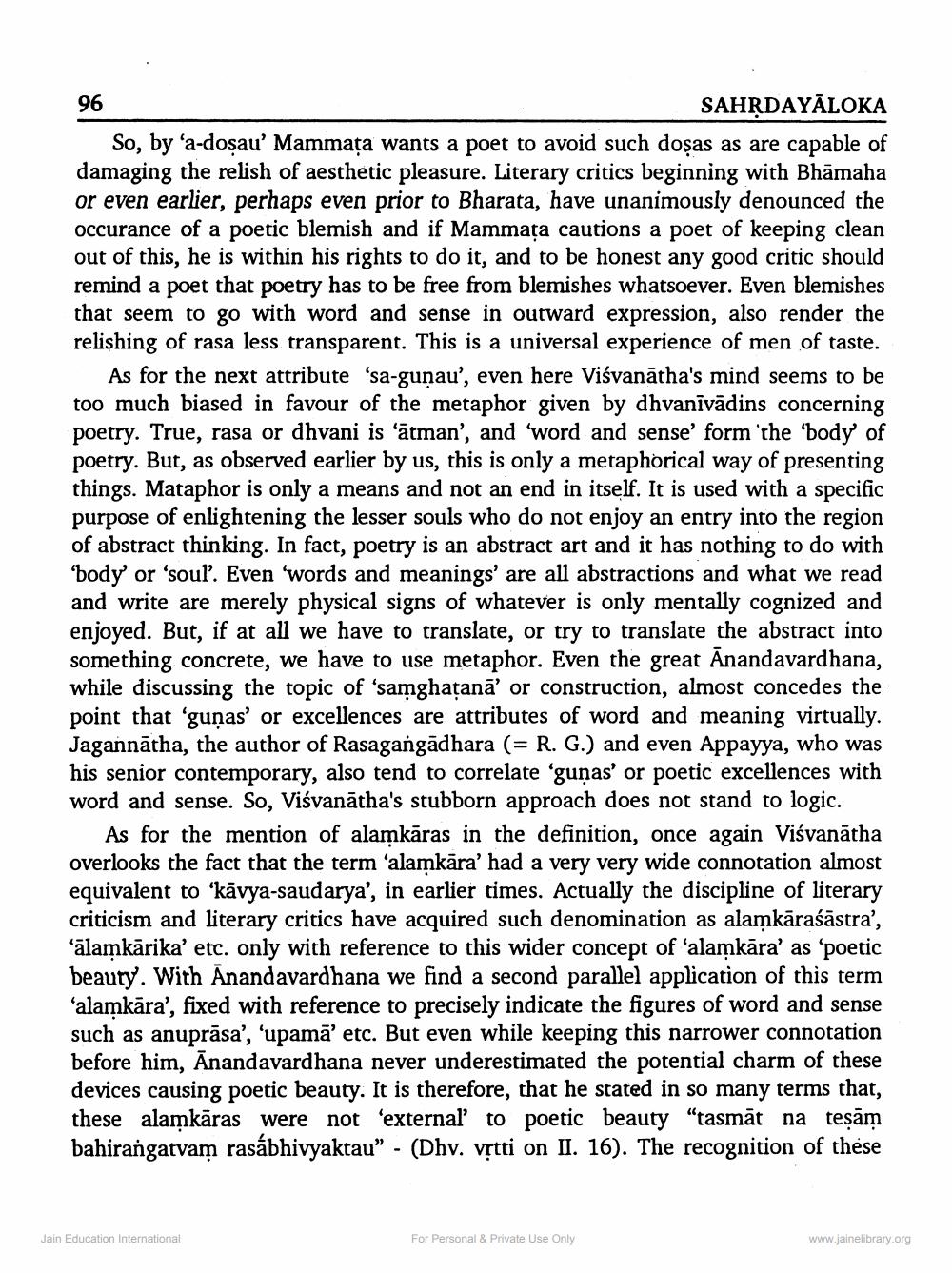________________
96
SAHRDAYĀLOKA
So, by 'a-dosau' Mammata wants a poet to avoid such dosas as are capable of damaging the relish of aesthetic pleasure. Literary critics beginning with Bhāmaha or even earlier, perhaps even prior to Bharata, have unanimously denounced the occurance of a poetic blemish and if Mammaţa cautions a poet of keeping clean out of this, he is within his rights to do it, and to be honest any good critic should remind a poet that poetry has to be free from blemishes whatsoever. Even blemishes that seem to go with word and sense in outward expression, also render the relishing of rasa less transparent. This is a universal experience of men of taste.
As for the next attribute 'sa-gunau', even here Viśvanātha's mind seems to be too much biased in favour of the metaphor given by dhvanīvādins concerning poetry. True, rasa or dhvani is 'ātman', and 'word and sense' form the 'body of poetry. But, as observed earlier by us, this is only a metaphorical way of presenting things. Mataphor is only a means and not an end in itself. It is used with a specific purpose of enlightening the lesser souls who do not enjoy an entry into the region of abstract thinking. In fact, poetry is an abstract art and it has nothing to do with 'body' or 'soul. Even 'words and meanings are all abstractions and what we read and write are merely physical signs of whatever is only mentally cognized and enjoyed. But, if at all we have to translate, or try to translate the abstract something concrete, we have to use metaphor. Even the great Anandavardhana, while discussing the topic of 'samghatanā' or construction, almost concedes the point that 'gunas' or excellences are attributes of word and meaning virtually. Jagannātha, the author of Rasagangadhara (= R. G.) and even Appayya, who was his senior contemporary, also tend to correlate 'gunas' or poetic excellences with word and sense. So, Viśvanātha's stubborn approach does not stand to logic.
As for the mention of alamkāras in the definition, once again Viśvanātha overlooks the fact that the term 'alamkāra' had a very very wide connotation almost equivalent to "kāvya-saudarya', in earlier times. Actually the discipline of literary criticism and literary critics have acquired such denomination as alamkāraśāstra', 'ālamkārika' etc. only with reference to this wider concept of 'alamkāra' as 'poetic beauty'. With Ānandavardhana we find a second parallel application of this term 'alamkāra', fixed with reference to precisely indicate the figures of word and sense such as anuprāsa', 'upamā' etc. But even while keeping this narrower connotation before him, Anandavardhana never underestimated the potential charm of these devices causing poetic beauty. It is therefore, that he stated in so many terms that, these alamkāras were not 'external to poetic beauty "tasmāt na teşām bahirangatvam rasábhivyaktau" - (Dhv. vrtti on II. 16). The recognition of these
Jain Education International
For Personal & Private Use Only
www.jainelibrary.org




